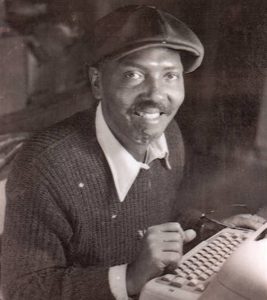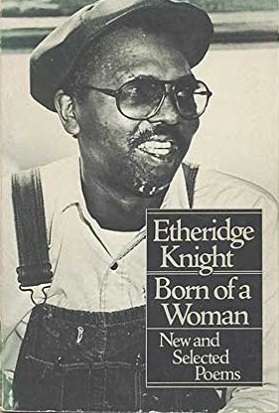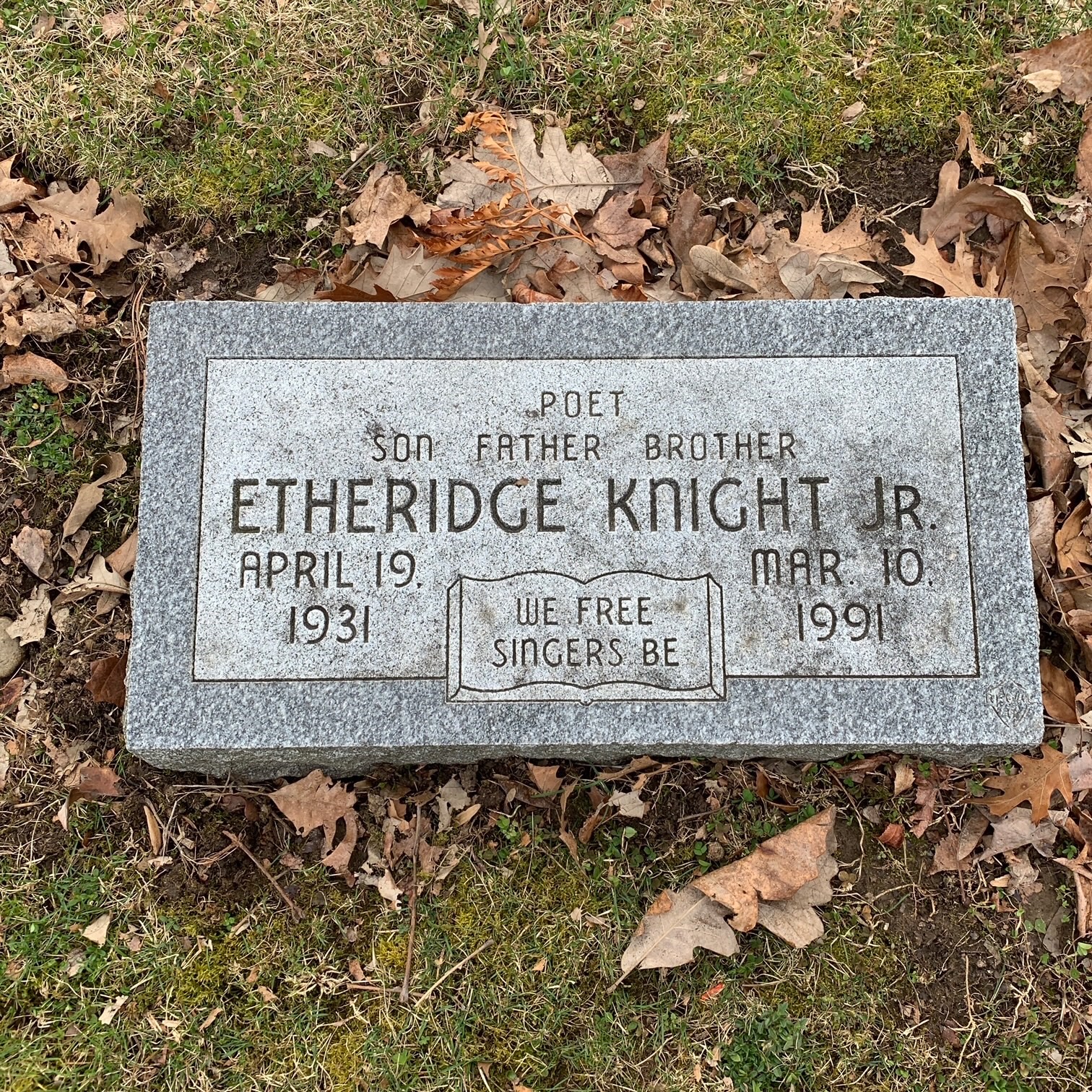Etheridge Knight (1931 – 1991)

Born in Mississippi, Knight dropped out of high school and joined the army soon after, serving during the Korean War. In Korea, he received the wound that would change his life. While he left military service with an honorable discharge, the medication given to treat his battle wound would develop into a drug addiction, which led to criminal activity in civilian life. After a robbery conviction, he served eight years in the Indiana State Prison. It was during this time that he began writing poetry.
When Knight entered prison, he was already an accomplished reciter of “toasts” — long, memorized, narrative poems, often in rhymed couplets. This work refined Knight’s expertise in this traditional Black artform. After working as a journalist for prison publications, he began submitting poetry to the Negro Digest. (Later renamed Black Word, this magazine was geared to the African American community.) Knight also established contacts with significant figures in the African American literary community.
His first collection, Poems from Prison (1968), included the following text on its back cover: “I died in Korea from a shrapnel wound, and narcotics resurrected me. I died in 1960 from a prison sentence, and poetry brought me back to life.”
Knight’s honors and awards included fellowships and prizes from the Guggenheim Foundation, the National Endowment for the Arts, and the Poetry Society of America. In 1990, he earned a bachelor’s degree in American poetry and criminal justice from Martin Center University in Indianapolis. Although he never won, he earned nominations for a Pulitzer Prize and National Book Award.



